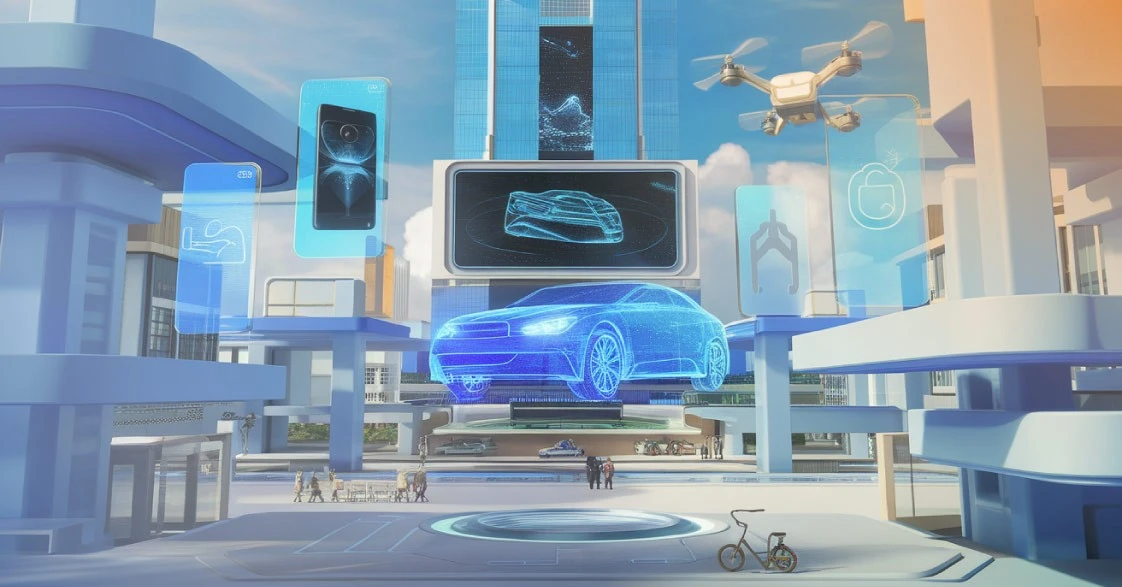Emerging Trends in Marketing: Shaping the Future of Advertising

The marketing landscape continuously evolves, with new technologies and consumer preferences redefining how brands connect with their audiences. To stay competitive, businesses must adopt the latest trends and adapt to changing expectations. In this blog, we'll explore some of the most emerging trends in marketing, their impact, and how they can be effectively used to create successful campaigns.
1. AI and Machine Learning in Marketing
Artificial Intelligence (AI) and Machine Learning (ML) revolutionise how businesses approach marketing. These technologies examine vast amounts of data to uncover insights, predict trends, and automate repetitive tasks.
How AI and ML Are Used in Marketing:
- Personalisation: AI tailors content, recommendations, and ads to individual users.
- Chatbots: Provide 24/7 customer support and improve engagement.
- Predictive Analytics: Help businesses forecast customer behaviour and optimise campaigns.
Example: E-commerce platforms like Amazon use AI to suggest products based on browsing and purchase record.
2. Influencer Marketing
Influencer marketing leverages the popularity of social media personalities to promote products and services. Consumers trust influencers because they see them as relatable and authentic.
Why It Works:
- High Engagement: Influencers have dedicated followers who value their opinions.
- Targeted Reach: Brands can work with influencers in niche markets to connect with specific audiences.
Example: Beauty brands like Fenty Beauty collaborate with makeup influencers to demonstrate their products to millions of followers.
3. Video Marketing
Video has become one of the most powerful tools in marketing, with its ability to convey messages quickly and effectively. Platforms like YouTube, TikTok, and Instagram have made video content more accessible and engaging.
Key Benefits of Video Marketing:
- Higher Engagement: Videos capture attention better than text or images.
- Better Retention: Consumers remember video content more effectively.
- Versatility: Videos can be used for tutorials, testimonials, or live events.
Example: Nike's inspirational short films showcase athletes overcoming challenges, resonating with their audience emotionally.
4. Voice Search Optimisation
With the rise of voice assistants like Alexa, Siri, and Google Assistant, voice search optimisation has become crucial for marketers. People now search using natural, conversational language.
How to Optimise for Voice Search:
- Use long-tail keywords that match how people speak.
- Optimise for local searches (e.g., "Best coffee shop near me").
- Ensure your website is mobile-friendly and fast.
Example: A local restaurant can optimise its website for voice search to attract more customers who are looking for “family-friendly dining options nearby.”
5. Virtual and Augmented Reality in Marketing
Virtual Reality (VR) and Augmented Reality (AR) deliver immersive experiences that uniquely engage customers. These technologies are especially popular in retail, real estate, and gaming.
Applications of VR and AR in Marketing:
- AR Shopping Experiences: Try-on features for clothes, glasses, or makeup.
- Virtual Tours: Real estate companies offering virtual property tours.
- Interactive Campaigns: Games or experiences built around the brand.
Example: IKEA's AR app lets users visualise how furniture will look in their houses before buying.
6. Marketing Automation
Marketing automation uses software to streamline repetitive tasks, such as email marketing, social media posting, and ad management. This supports businesses save time and focus on strategy.
Benefits of Marketing Automation:
- Efficiency: Reduces manual work.
- Consistency: Ensures timely delivery of campaigns.
- Personalisation: Delivers tailored messages based on user behaviour.
Example: A retailer can use automation to send cart abandonment emails, reminding customers to complete their purchases.
7. Programmatic Advertising
Programmatic advertising uses AI to automate the buying and placement of ads in real time. It ensures that ads are shown to the right audience at the right time.
Why Programmatic Advertising is Effective:
- Precision: Targets specific demographics and behaviours.
- Real-Time Adjustments: Optimises campaigns on the go.
- Cost-Effectiveness: Reduces wasted ad spend.
Example: A travel company can use programmatic ads to target users searching for flights or hotel bookings.
8. Mobile Marketing
With most online traffic from mobile devices, mobile marketing has become a cornerstone of digital techniques.
Key Mobile Marketing Techniques:
- SMS Campaigns: Directly reach customers with promotional messages.
- Mobile-Friendly Websites: Ensure smooth browsing experiences.
- In-App Advertising: Target users within popular apps.
Example: Food delivery apps like Zomato and Uber Eats use push notifications to alert users about discounts or new menu items.
9. Marketing Ethics and Sustainability
Consumers today value brands that demonstrate ethical practices and support sustainability. Marketing strategies now focus on transparency, inclusivity, and environmental responsibility.
How to Incorporate Ethics and Sustainability:
- Highlight your brand's ethical sourcing of materials.
- Promote eco-friendly initiatives, like reducing waste or carbon emissions.
- Support social causes and inclusivity in your campaigns.
Example: Patagonia's campaigns focus on environmental conservation, reinforcing its responsible, sustainable brand image.
Final Words
Marketing trends continue to evolve as technology and consumer behaviour change. By staying forth of these emerging trends, businesses can build impactful campaigns that resonate with their audiences. Whether leveraging AI, collaborating with influencers, or embracing ethical practices, adopting these strategies will ensure your brand stays relevant in a competitive marketplace.
Now is the time to innovate, adjust, and transform your marketing approach to meet future demands. Embrace these trends, and watch your business grow!

FAQs
Share
Table Of Contents
- 1. AI and Machine Learning in Marketing
- 2. Influencer Marketing
- 3. Video Marketing
- 4. Voice Search Optimisation
- 5. Virtual and Augmented Reality in Marketing
- 6. Marketing Automation
- 7. Programmatic Advertising
- 8. Mobile Marketing
- 9. Marketing Ethics and Sustainability
